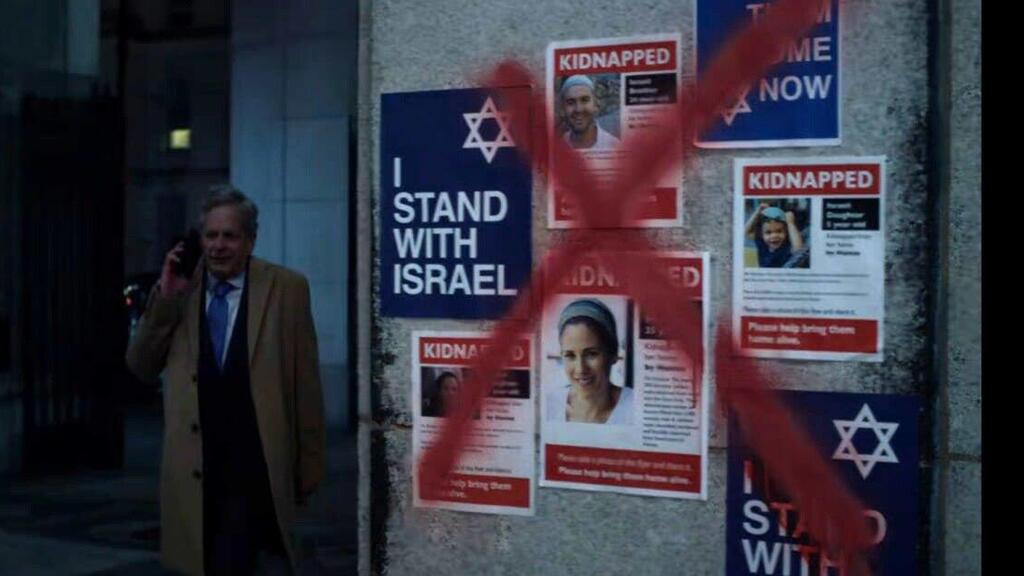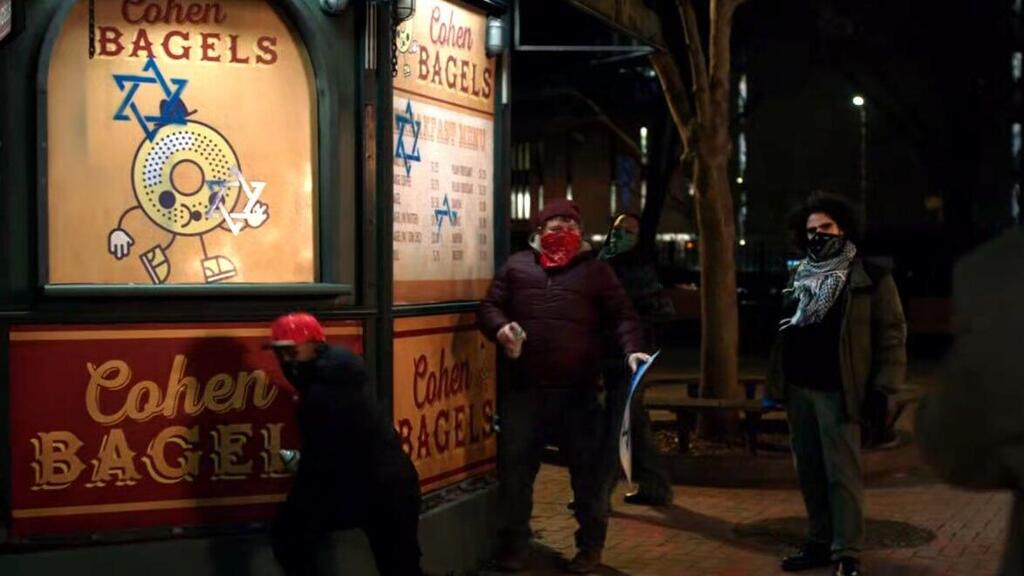The season premiere of "Law & Order," the original series, aired last week, and as the show has done many times in the past, it incorporated recent world headlines, in this case, Israel.
Read more:
The 23rd season started with an episode titled "Free Expression," focusing on the murder of the Jewish president of the fictional Hudson University, who was under scrutiny for plagiarism.
The opening scene depicts the president's stabbing in front of the fictional Cohen Bagels, a Manhattan store graffitied with blue Stars of David. Various individuals express dissatisfaction with the president's leadership, including both Jewish and pro-Palestinian factions. The episode weaves in real-world references, such as Harvard's former president Claudine Gay's resignation amid plagiarism accusations.
The narrative delves into the campus controversy surrounding the documentary "Israelism" and mentions the October 7 terror attack, with tensions escalating among pro-Israel and pro-Palestinian groups. The episode includes protesters, discussions on the use of slogans like "from the river to the sea," and even touches on transgender athletes.
Notably, the episode, co-written by series creator Dick Wolf, exhibits a careful balancing act in addressing the contentious issues. While the pro-Palestinian protesters are portrayed negatively, depicted as brainless agitators, the show introduces a Jewish, Zionist murderer as well. This character, responsible for killing a student protester, is swiftly dealt with by the police.
"Law & Order," typically a basic network crime serial, ventures into socially relevant themes. Despite not being considered prestige TV, the episode attempts to navigate the complexities of the Israel-Palestine debate, presenting both sides as culpable in the violence. The show's historically progressive stance is acknowledged, although its current portrayal of political battles is critiqued for being somewhat shallow.
In the end, while "Freedom of Expression" attempts to depict today's political conflicts as inane, Law & Order itself remains intertwined with these issues, acknowledging the role of television in shaping cultural perspectives.



